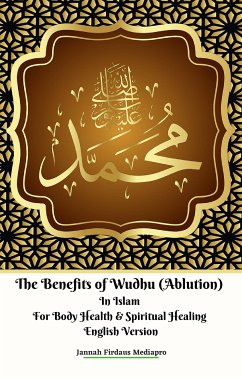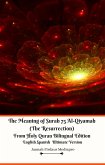Islam faith emphasizes the importance of purifying our bodies since it strengthens our souls, ultimately bringing us closer to the One who is the Creator of all. All Muslims perform ablution (Wudhu) before offering prayer or reciting the The Noble Qur’an. This is a simple yet obligatory practice of washing certain body parts, including one’s hands, feet, arms, mouth, nostrils, ears, and face. Not to mention, while performing Wudhu purifies our body, it also induces great health benefits that positively affect our mental and physical wellbeing.
Wuḍhu is the Islamic procedure for cleansing parts of the body, a type of ritual purification, or ablution. The 4 Fardh (Mandatory) acts of Wudu consists of washing the face, arms, then wiping the head and the feet with water. Wudu is an important part of ritual purity in Islam. It is governed by fiqh (Islamic jurisprudence), which specifies rules concerning hygiene and defines the rituals that constitute it. It is typically performed before prayers (salah or salat).
Wuḍhu is the Islamic procedure for cleansing parts of the body, a type of ritual purification, or ablution. The 4 Fardh (Mandatory) acts of Wudu consists of washing the face, arms, then wiping the head and the feet with water. Wudu is an important part of ritual purity in Islam. It is governed by fiqh (Islamic jurisprudence), which specifies rules concerning hygiene and defines the rituals that constitute it. It is typically performed before prayers (salah or salat).









